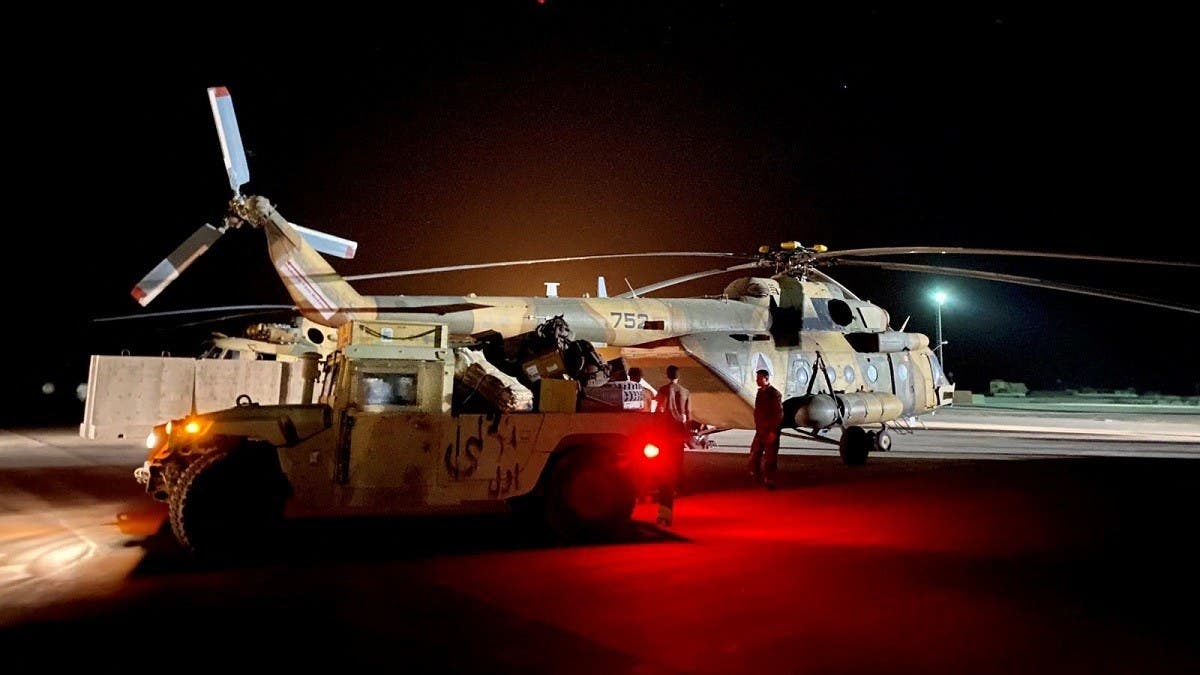Months before President Joe Biden announced the US’s complete withdrawal from Afghanistan last year, Washington’s watchdog warned that the Afghan air force would collapse without critical American aid, training and maintenance. The report was declassified Tuesday.
The report by the Special Inspector General for Afghanistan Reconstruction John Sopko, submitted to the Department of Defense in January 2021, underscores that American authorities had been alerted that Afghanistan’s air force did not have the capabilities to survive after a US withdrawal. In particular, the report points to US failure to train Afghan support staff, leaving the air force unable to maintain its aircraft without American contractors.
For the latest headlines, follow our Google News channel online or via the app.
US air support to government forces was key in the 20-year-war against Taliban insurgents. Its removal — along with the inability of the Afghan air force to fill the void — was one factor that contributed to the Taliban’s sweeping victory as the Americans withdrew.
The inspector general’s office told The Associated Press on Monday that it is rare for SIGAR reports to be classified but when they are, a declassified version is issued by the Pentagon in under two months. The office said it did not know why it took the Defense Department more than a year before declassifying this particular report, or why it did so now, five months after the Taliban took power.
SIGAR has tracked and documented Washington’s spending and progress in Afghanistan since the office was established in 2008. It has released successive reports that documented corruption, Afghan and US leadership failings and weaknesses within the Afghan army, offering recommendations on where to improve.
Since the 2001 US-led invasion that ousted the Taliban and during the long war that ensued, Washington spent more than $145 billion on reconstruction in Afghanistan and nearly $1 trillion on its military engagement. Billions went to building up the Afghan military forces.
Biden announced in April that the last 2,500-3,500 US troops would leave along with NATO’s 7,500 troops, following a deal reached with the Taliban by the Trump administration. The announcement started a rapid collapse of the Afghan defense forces.
The Taliban’s sweep through the country was swift, with many areas falling without a fight as Afghan troops — many of whom had not received their salaries from the Afghan government in months — fled. Afghan warplanes continued to hit Taliban positions in some areas in June and July last year, but it was not enough to stem the tide.
The Taliban entered Kabul on Aug. 15 after US-backed President Ashraf Ghani fled the capital. By the end of August, the US completed its chaotic departure and the evacuation of tens of thousands of Afghans, marked by images of young men clinging to departing US aircraft for an opportunity to live in the US and flee the Taliban’s harsh and restrictive rule.
Over the preceding months, Afghan officials had warned that the air force was not able to stand on its own. Ata Mohammed Noor, a powerful warlord in northern Afghanistan who was a key US ally in the 2001 defeat of the Taliban, said the fleet was overused and under-maintained.
“Most of the planes are back on the ground. They cannot fly and most of them are out of ammunition,” he said.
The newly declassified SIGAR report says that between 2010 and 2019, the US spent $8.5 billion “to support and develop” the Afghan air force and its elite unit, the Special Mission Wing. But the report warns that both are ill-prepared. It also warns against removing the hundreds of US contractors who maintained the aircraft fleet.
According to the report, NATO and the US switched in 2019 from building the air force to making sure it had a chance at long-term survival.
But Sopko gave their efforts a failing grade, saying the Afghan air force hadn’t been able to get the qualified personnel needed to set itself on the road to independence.
He said a combination of US and NATO military personnel, as well as US-funded contractors, had focused on training pilots but had not prioritized training for 86 percent of Afghanistan Air force personnel, including its support staff.
Even as the US Department of Defense touted the Afghan air force’s progress “in combat operation capabilities, pilot and ground crew proficiency, as well as air-to-ground integration,” Sopko said, they continued “to struggle with human capital limitations, leadership challenges, aircraft misuse, and a dependence on contractor logistic support.”
Read more:
Ghani blames US deal with Taliban for fall of Afghanistan
Explainer: US pays $4 bln to Afghan forces; Who is watching?
Watch: The Taliban parade US military gear in Afghanistan

 World3 years ago
World3 years ago
 World2 years ago
World2 years ago
 Entertainment7 years ago
Entertainment7 years ago
 World7 years ago
World7 years ago
 Business10 months ago
Business10 months ago
 Entertainment7 years ago
Entertainment7 years ago






